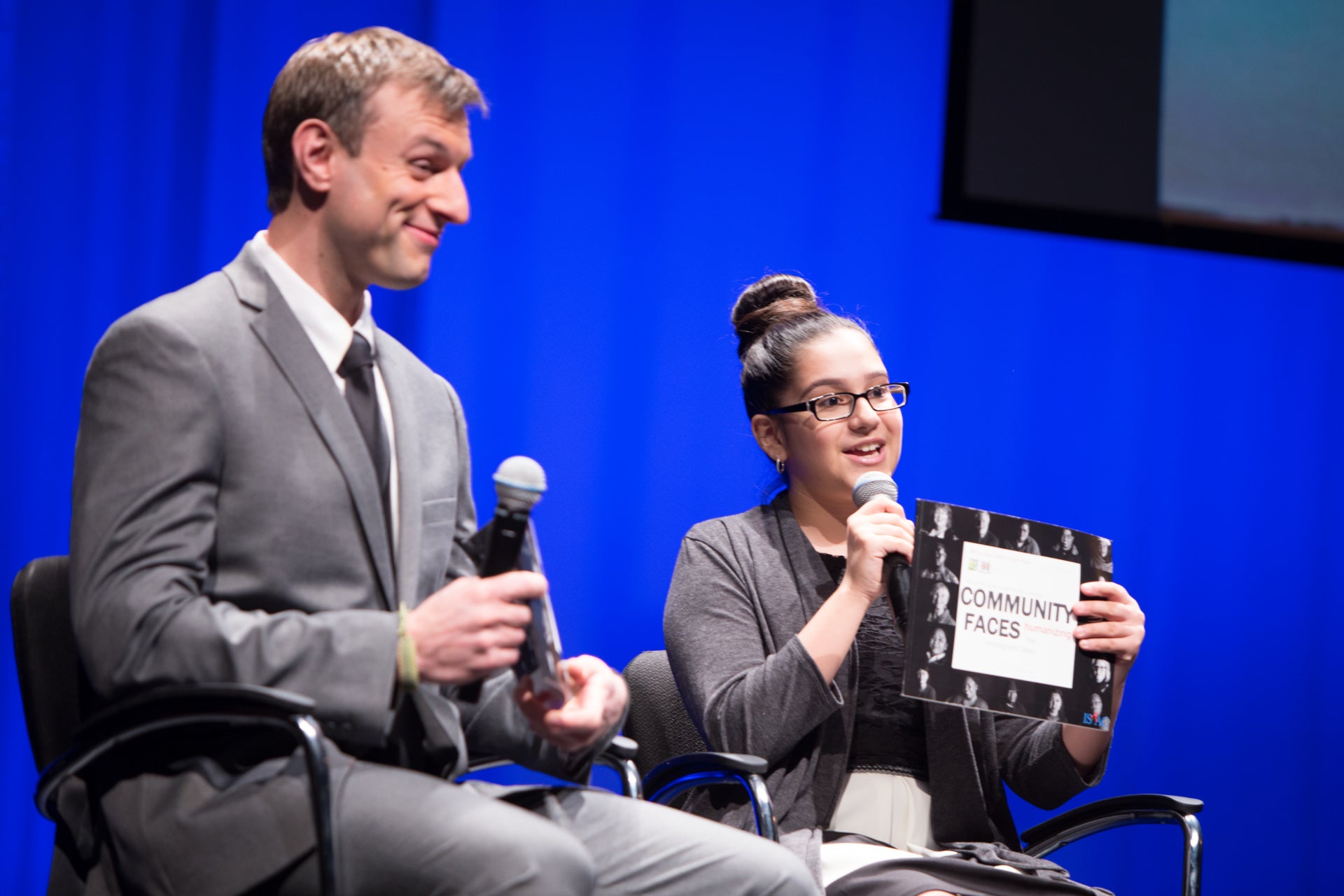Community colleges today enroll about 40 percent of all US undergraduates, or approximately six million degree-seeking students. These institutions provide essential pathways to good jobs and continued education. They play an integral role in helping our nation develop talent and enable social mobility. And they disproportionally serve low-income students and students of color who have historically been overlooked and underserved by higher education.
Launched in 2010, the $1 million Aspen Prize for Community College Excellence honors institutions that strive for and achieve exceptional levels of success for all students, while they are in college and after they graduate. Today, we are proud to announce and congratulate the 10 finalist institutions for the 2019 Aspen Prize.
Alamo Colleges District – Palo Alto College (San Antonio, TX)
Palo Alto College has engaged in an impressive set of structural reforms over the past few years focused on building clear pathways to transfer. By using an exemplary case-management model of advising and collaborating with districts on effective dual-college programs and early college high schools, Palo Alto’s combined graduation and transfer rate has climbed by nearly 20 percentage points, from 28 percent to 47 percent.
Broward College (Fort Lauderdale, FL)
Broward College has developed clear credential pathways with well-defined course sequences and a supportive wraparound system of advising, and works hard to connect students to four-year universities. Broward has done this while almost entirely eliminating disparities for underrepresented students, with a combined graduation and transfer rate for students of color of 46 percent—more than 10 percentage points above the national average.
CUNY Kingsborough Community College (Brooklyn, NY)
Kingsborough Community College is a national pioneer in developing innovative cohort-based models for supporting students with intensive academic and nonacademic supports. Kingsborough also serves as a very strong pathway for transfer to a four-year institutions due to strong formalized partnerships. Forty-nine percent of Kingsborough’s students transfer to a four-year institution—17 percentage points above the national average.
Indian River State College (Fort Pierce, FL)
Despite being more than 60 miles from the nearest four-year institution, Indian River State College has among the highest rates of success in the nation for students who go on to complete bachelor’s degrees—many in programs that the college created to meet demands of the local labor market. IRSC graduates on average significantly outearn other workers in the region both one and five years after graduating.
Miami Dade College (Miami, FL)
Miami Dade is the largest community college in the nation, with more than 95,000 students enrolled in credit programs. It’s also incredibly diverse: 85 percent of its students are students of color, 32 percent are over age 25, and 20 percent are immigrants from more than 150 countries. Graduation and transfer rates are above the national average, and student success metrics continue to improve every year—nearly half of students who transfer complete a bachelor’s degree.
Mitchell Technical Institute (Mitchell, SD)
Mitchell Technical Institute is committed to its rural community of 15,000 residents in eastern South Dakota, with a laser-sharp focus on preparing students to be successful in the good jobs that exist in the region. Nearly all students at Mitchell attend full-time in programs with clear course sequences and extensive work-based and applied learning opportunities, resulting in a 73 percent graduation rate within three years. The vast majority of students have jobs lined up even before they complete.
Odessa College (Odessa, TX)
In a community where a college education competes with a strong labor market, Odessa is singularly focused on finding innovative strategies to help students connect to and stay at the college to complete a credential. For example, the college redesigned almost all courses into eight-week semesters rather than the traditional 16. The results have been remarkable—the number of students withdrawing from courses has hit a record low of 1.8 percent, and three-year graduation and transfer rates more than doubled in just five years.
Pasadena City College (Pasadena, CA)
Pasadena City College is committed to building a culture of equity that permeates every aspect of the way the college does business, starting with its hiring practices and professional development for all faculty and staff. The result of these efforts is above-average and continually improving outcomes in completion and transfer.
Pierce College Fort Steilacoom (Lakewood, WA)
Pierce College Fort Steilacoom has seen steady increases in student retention and completion over time, and its completion rate of 59 percent is nearly 20 percentage points above the national average. The college is aggressive in identifying and eliminating what they refer to as the “microbarriers” that stand in the way of student success.
San Jacinto College (Pasadena, TX)
San Jacinto College offers strong workforce programs that are directly aligned to employer needs and job opportunities in the region—especially in health care, maritime, and petrochemical industries. The college has made significant investments to ensure that students get strong consistent advising and other supports to help them stay on track to completion or transfer.
These Aspen Prize Top 10 Finalists have achieved strong and improving student success rates in very different contexts – they are from rural and urban areas, serve demographically different student bodies, and offer a varied mix of technical workforce and academic transfer programs. These 10 institutions offer proof that every community college can achieve higher levels of success for students while in college and after they graduate.
In a review of over 100 applications by a 15-member expert selection committee, several strong practices emerged as common among the 10 finalists, including:
- Strong commitment to improving teaching practices and ensuring all students gain the knowledge and skills they need to succeed after transfer and in the labor market.
- Intentional strategies to increase access to and success in courses and programs across all student populations, regardless of race/ethnicity or socioeconomic status.
- Clear pathways to degrees, aligned to high-demand regional workforce demands.
This fall, the Institute will complete a rigorous review process that includes examination of data on learning, graduation, workforce, and equitable outcomes for all students as well as multi-day site visits to each of the 10 finalist institutions. In early 2019, a distinguished Prize Jury will select a grand prize winner, finalists-with-distinction, and a Rising Star. An award announcement event will be held in Washington, DC in April 2019 to celebrate the achievements of all 10 finalists.
The 2019 Aspen Prize for Community College Excellence is generously funded by the Joyce Foundation, The Kresge Foundation, and the Siemens Foundation.


